Three Hundred and Sixty Degrees of Seperation
A self-fulfilling prophecy is defined as such: a prediction that directly or indirectly causes itself to become true, by the very terms of the prophecy itself, due to positive feedback between belief and behavior.
Easier way to say this is: any expectation, positive or negative, about a situation or event that affects an individual behavior in such a manner that it causes that expectation to be fulfilled.
We’ve heard of this before, this isn’t a new term. And every time they happen, even though we KNEW what was going to happen, we still find ourselves shocked that it did. Like a slow moving train wreck we begin to yell at the screen–TURN LEFT YOU IDIOT YOUR FATHER IS IN THAT ROOM WHERE YOU DROPPED YOUR SKITTLES YOUR SHOES ARE UNTIED OHMYGOD YOU’RE GOING TO DIE!–because we can see it happening right in front of our eyes.
There are a few factors that define what makes a prophecy self-fulfilling.
One is the propheceer ( I totally just made that word up) has to hear or experience the prophecy.
Two is the propheceer has to apply some sort of belief base to it, whether they think it’s possible or impossible.
Three after the propheceer (Merriam-Webster, add this to the dictionary, its lingual gold!) hears this prophecy, he, she, they, alter their behavior to avoid it.
As we know, it is that aversion, that behavioral change and subsequent eurostep with enough dodging to make your 3rd grade dodgeball champ self proud dodging, is what makes this whole plot device work.
Common examples of self-fulfilling prophecy are well known in the literary world. Oedipus comes to mind (that devious mother lover), but there are other examples.
There is one in Fire Logic by Laurie J. Marks. JK Rowling’s Harry Potter series is rift with them, and Dune will spin your head with its use of the device. We can venture outside of literature and find it as well. Gendo Ikari from Neon Genesis Evagelion with his daddy-son ‘I don’t want to hurt you, Shinji’ issues. ALL of Star Wars—poor Anakin (tangent note; the entire original series would not have worked without the self-fulfilling prophecy. It is THE central plot device, although we didn’t know that when we first start). Minority Report relies on this trope, as well as Terminator, Twelve Monkeys and Premonition.
Personally I am in love with any device that twist and plays with fate. I often use it in my own writing. Why? Because fate is such as straight line theory with us all– this fundamental belief that the divine is guiding us, that it serves as this majestic stimulus for the things that we do, that fate is the very reason certain and all things happen to us. The meddling with that concept creates a pocket of space, within whatever universe it is set in, that is almost romantic, surreal, transcendent and otherworldly, even if it will create horrors unforeseen.
So you can guess I spend a lot of time gravitating around that concept as if it were an umbilical cord to creativity and concepts I can’t quite grasp with all of my logic. However, one of my FAVORITE most favorite self-fulfilling prophecy is a prophecy that isn’t even considered one.
Hyūga Neji
Right now some people are scratching their heads and some people are pointing at their screens going “YEAAAAAAAH! I saw that too!”
The reason why some may not consider it a self-fulfilling prophecy, or even noticed that it was one, is well…Naruto is a busy manga. It is chock-full of about 10-15 subplots (I’m being conservative, here) that intermingle with its main plot flawlessly (note: that may or may not be a very biased statement. Some of the plot holes in Naruto make it look like a slice of Swiss cheese. I chose to be blind to those plot holes. I don’t ask questions, I don’t confuse myself.)
But just like it’s easy to recognize that Itachi is the underlying fuel for the entire Naruto premise (not you Kyuubi; you were just an adorably confused destructive power that provided character development fodder for Naruto to chow down on! Yay!) it is easy to see that Neji’s life and ultimately his death is an example of, although slightly lampshaded, a self-fulfilling prophecy.
Let’s rehash everything we know about Neji.
One, when we first meet him, he’s a little asshole–an unrelenting, egotistical arrogant little son of a bitch. I mean even Gaara was more likable than Neji during the Genin exams and Gaara was alarmingly horrifying. I mean, downright terrifying. He was–at what, 10 years old?– literally crushing people to death with sand. SAND. SAND! And even with all of the dread that he managed to conjure, I still liked him more than Neji.
(note: unless you are hoping to find any flash fanfiction or slash fanart of the Neji/Gaara ship (because WHO KNEW) don’t google Neji vs. Gaara. Trust me.)
But as with all the characters in Naruto–not too many people, not even villains, move blindly through this universe. Everyone has a motivation and oft than not, it’s heartbreaking–Neji has a reason to his assholeism (made that word up too. Webster should just start paying me!).
What is that reason? His pecking order in his clan.
Neji was a branch house member. As all Naruto fans know, the Branch House was the house that was always and forever, until the end of time, in service to the Main House. Here’s the secret: That fact IS the self-fulfilling prophecy.
However, Neji’s acceptance of that see-saws and that’s why people don’t point and go a-ha! Neji actually accepted his fate initially, this prophecy that was handed down to him through living through his father, Hizashi, sacrificing himself for the Main House, namely his brother Hiashi’s . The prophecy that Neji was more shown and raised in, rather than told in a loud booming voice of some seer or god was: you are fated to serve the Main House for as long as you are alive and you will die for the Main House if so be it.
Neji entrenches himself in this fact to the point it motivated a twisted sadistic side of him, one that is out to prove that you are a victim to fate, not a benefactor of it.
“People are judged by their true nature. It is the way of the world. That is why we have an elite, and that is why we have outcasts. We can change our physical appearance and improve our skills with training and study, but ultimately, we are judged by what we cannot change. What can’t be changed must be endured. We are who we are, and we must live with it.”
As is Naruto’s duty, Neji is practically beat over the head with the protagonist never-ending non-exhaustive reservoirs of “YOU CAN DO ITS” that eventually he (after a heart to heart with his uncle) alters his ideology on what he considers his fate is and devises a new one. Where we can symbolically see Neji’s will go from a caged bird…
“The curse mark is the symbol of a bird locked in its cage. It’s the mark of those who are bound to a destiny they cannot escape”
…to one of an uncaged bird. (free will and shit. Go back and look at some of the manga stills involving him. Birds. )
Yet it is this ideology change that eventually gets him killed. He dies in the role he was always meant to fulfill: dying for Main House (if you want to be nitpicky, a member of the Main House and her eventual Prince Consort, but whatevs.)
Now some are probably saying: Neji would have died regardless because his role was to protect the Main House. Sure. However, people forget he almost KILLED Hinata in their first battle and it took Naruto and The “What in THE HELL are you doing, man?” posse to stop him from doing such.
So old, arrogant, full of disdain Neji, despite his acceptance of his fate, would have looked the other way, thus probably saving his life, while gigantic toothpicks impaled Hinata and her eventual lover.
New, sweet, thoughtful, badass with a heart Neji and his “fate be damned” ideology does exactly what his fate asks him to do! He dies for the Main House.
Did Neji beat fate, or did Neji submit to it? It almost makes your head hurt right? That’s because Kishimoto is a mad-man.
I wonder if Neji and his Byakugan…saw that one… coming? (bah-dah-ting) No? Too soon. Okay.
P.S. BRING NEJI BACK. I DON’T CARE HOW YOU DO IT BRING HIM BACK.
All images belong to their respective parties.



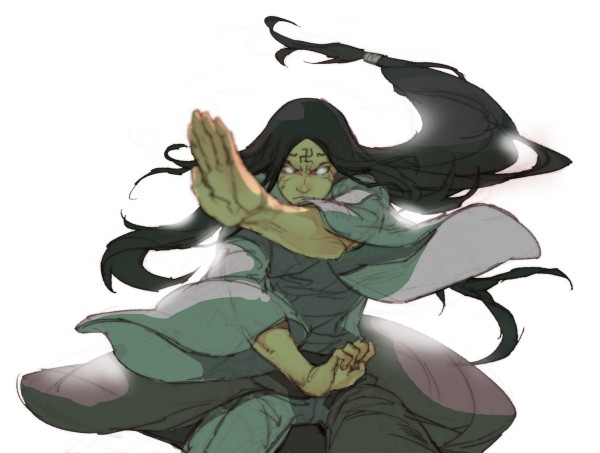


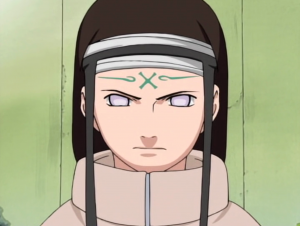

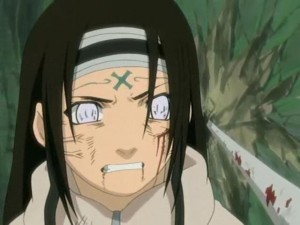
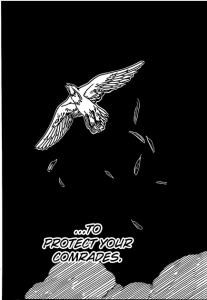
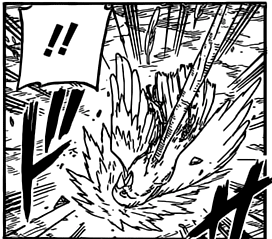
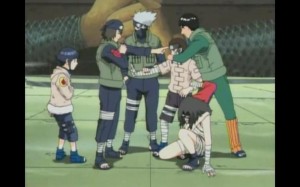
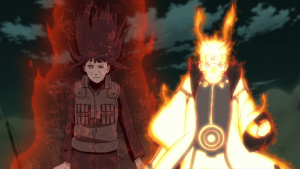
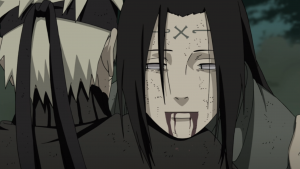
No comments yet.